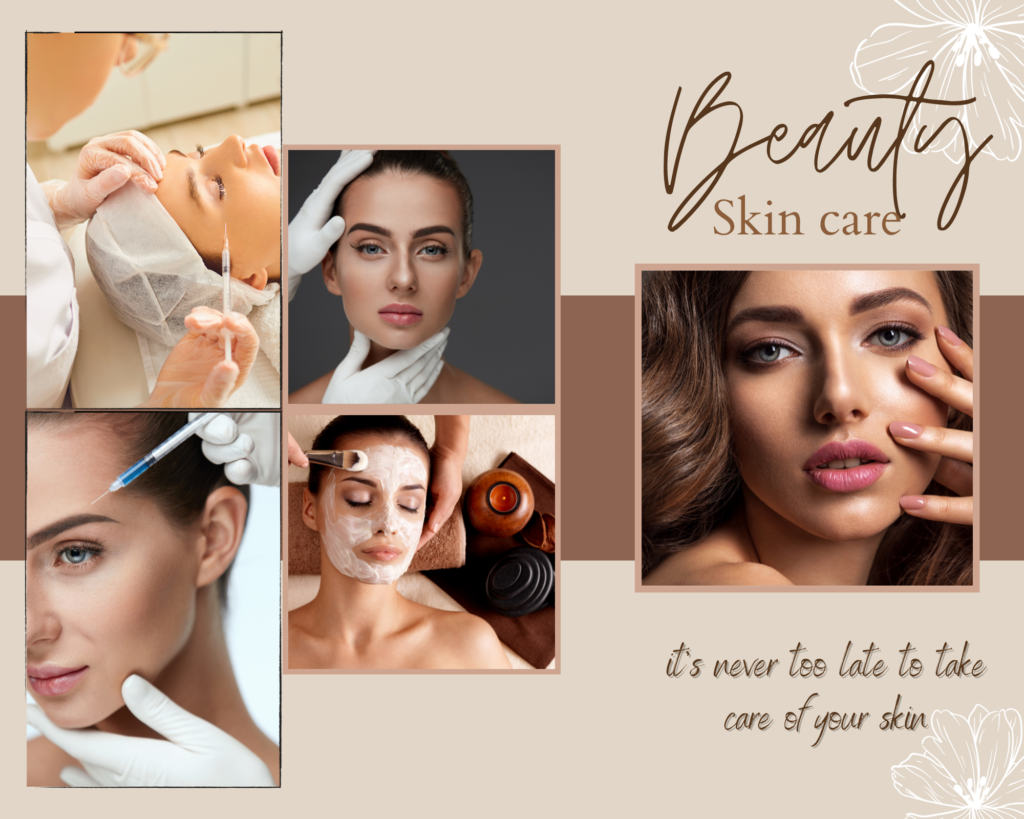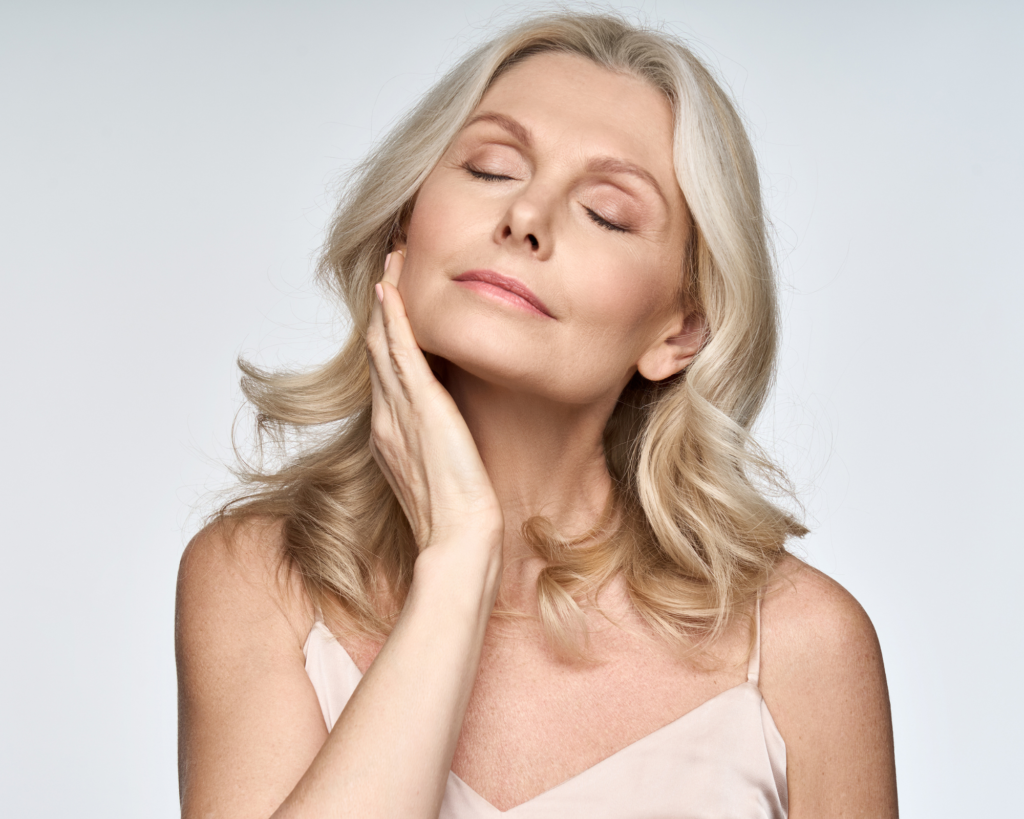In a world where time seems to fly by, the pursuit of timeless beauty has become a universal aspiration.While we can’t halt the hands of time, the field of skincare has made remarkable strides in helping us age gracefully.
Anti-aging skincare has evolved beyond mere vanity; it’s now a science-backed journey towards healthier, more radiant skin.
With the beauty industry offering a plethora of anti-aging skincare products and procedures, it can be overwhelming to navigate through the sea of options.
In this blog post, we will delve into the benefits and drawbacks of anti-aging skincare and help informed decisions about your skincare routine, exploring the key ingredients and lifestyle choices that can contribute to a more youthful complexion.
Understanding the aging process:
Before we jump into the benefits and drawbacks of anti-aging skincare, it’s essential to understand the biological processes that contribute to aging. This is a natural process that affects everyone, and it is true that we all want to maintain a youthful appearance for as long as possible. .
Aging is a multifaceted phenomenon caused by a combination of :
– genetic factors,
– environmental stressors,
– and lifestyle choices.
As we age, our skin’s collagen and elastin production decrease, causing the skin to lose firmness and elasticity. Additionally, external factors such as sun exposure, pollution, and poor skincare habits can accelerate the aging processp
Benefits of anti-aging skincare:
- Improved Skin Health: A well-rounded anti-aging skincare routine can help nourish and protect your skin, leading to improved overall skin health. This includes keeping it hydrated, reducing inflammation, and maintaining a healthy skin barrier.
- Minimized Appearance of Fine Lines and Wrinkles: Certain anti-aging ingredients, such as retinol and peptides, have been shown to increase collagen production, reducing the appearance of fine lines and wrinkles over time. see The Benefits of Anti-Aging Facials
- Prevention of Photoaging: Regular use of broad-spectrum sunscreen and antioxidants can help protect against premature aging caused by sun damage, reducing the risk of sunspots, uneven skin tone, and wrinkling.
- Boosted Confidence and Self-Esteem: Taking care of our skin goes beyond its physical benefits. A proper anti-aging skincare routine can help improve our self-confidence, leading to enhanced overall well-being and quality of life.
Best anti-aging skincare ingredients
- Retinoids:
Retinoids, derivatives of vitamin A, are powerhouse ingredients in anti-aging skincare. They stimulate collagen production, promote cell turnover, and fade dark spots. Prescription-strength retinoids, like tretinoin, are highly effective, while over-the-counter options, such as retinol, provide a gentler introduction for beginners. - Vitamin C:
An antioxidant powerhouse, vitamin C helps combat free radicals caused by sun exposure and pollution. It brightens the skin, evens out tone, and supports collagen synthesis. Look for stabilized forms like ascorbic acid in serums for optimal results. see: Add Vitamin C Serum to Your Skin Care Routine - Hyaluronic Acid:
Known for its exceptional hydrating properties, hyaluronic acid is a moisture magnet. It plumps the skin, reducing the appearance of fine lines and creating a smoother complexion. Incorporating a hyaluronic acid serum or moisturizer into your routine is a hydrating game-changer. see Benefits - Peptides:
Peptides are amino acid chains that support collagen and elastin production. They play a crucial role in maintaining skin firmness and reducing the signs of aging. Peptide-infused products, such as serums and creams, are beneficial additions to an anti-aging regimen.*
Simple anti-aging skincare routine:
*Cleansing:
A gentle cleanser is the first step in any skincare routine. Opt for a sulfate-free cleanser to avoid stripping the skin of its natural oils. Double cleansing, using an oil-based cleanser followed by a water-based one, ensures a thorough clean without over-drying.
*Exfoliation:
Regular exfoliation removes dead skin cells, promoting cell turnover and allowing active ingredients to penetrate better. Choose between physical exfoliants (scrubs) and chemical exfoliants (AHAs or BHAs) based on your skin type and sensitivity.
*Serums:
Serums are concentrated formulations designed to address specific skincare concerns. Incorporate a vitamin C serum in the morning for antioxidant protection and a retinol or peptide serum in the evening to stimulate collagen production.
*Moisturization:
Keeping the skin well-hydrated is essential for a youthful appearance. Choose a moisturizer with hydrating ingredients like hyaluronic acid and a balanced mix of emollients. Don’t forget to extend your moisturizer to your neck and décolleté.
*Sunscreen:
Sunscreen is the ultimate anti-aging weapon. UV rays accelerate skin aging, causing wrinkles and dark spots. Opt for a broad-spectrum sunscreen with at least SPF 30 and reapply throughout the day, especially if you’re outdoors.

Disadvantages of anti-aging skincare:
Debunking Myths about anti-aging skincare
- “Anti-aging products can make you look ten years younger overnight.” While anti-aging products can deliver visible improvements over time, it is unrealistic to expect drastic changes overnight. Slow and steady wins the race when it comes to anti-aging treatments. see : 5 myths
- High Cost: Anti-aging skincare products and treatments can be expensive, making them inaccessible for some individuals. However, it’s worth noting that effective anti-aging can also be achieved with affordable options and a consistent skincare routine.
- “Natural ingredients are always better.” Natural ingredients can certainly have beneficial properties. However, it’s essential to remember that efficacy varies depending on concentration, formulation, and individual skin type. Embracing both natural and scientifically-backed ingredients can provide the best results.
Side effects of anti-aging cream
In recent times, concerns have emerged about the potential dangers associated with certain anti-aging formulations. see: Anti-aging creams could cause cancer
*Hidden Toxins and Irritants:
Not all ingredients labeled as “anti-aging” are safe for every skin type. Some products may contain hidden toxins, allergens, or irritants that can lead to adverse reactions. Harsh chemicals, synthetic fragrances, and preservatives may cause redness, itching, or even more severe allergic reactions. It’s crucial for consumers to scrutinize ingredient lists and opt for products with minimal, skin-friendly formulations.
*Overuse of Retinoids:
Retinoids, lauded for their effectiveness in combating signs of aging, can be a double-edged sword. Overuse or incorrect application of retinoid-based products may lead to dryness, flakiness, and increased sensitivity. In some cases, it may exacerbate existing skin conditions. Consulting with a dermatologist and following usage guidelines is imperative to avoid potential harm.
*Misuse of Chemical Peels:
Chemical peels are popular for their exfoliating properties, aiding in skin renewal. However, their misuse or overuse can result in burns, scarring, and hyperpigmentation. It’s crucial to undergo chemical peels under professional supervision and follow post-peel care instructions diligently.
Are anti-aging skincare safe
*Allure of Invasive Procedures:
As the demand for youthful skin intensifies, some individuals turn to invasive procedures such as Botox and dermal fillers without proper consideration of the risks involved. These procedures, when administered improperly, can lead to facial asymmetry, nerve damage, or infection. Seeking qualified professionals and thoroughly researching the chosen procedure are essential steps to minimize potential dangers.
*Unregulated Products in the Market:
The skincare industry is vast, and not all products undergo rigorous testing or adhere to strict quality control measures. Counterfeit or unregulated products may contain harmful substances, including heavy metals and undisclosed ingredients. Purchasing skincare from reputable brands and authorized retailers helps mitigate the risk of exposure to subpar or dangerous formulations.
*Sunscreen Controversies:
While sunscreen is a cornerstone of anti-aging skincare, recent controversies surrounding certain sunscreen ingredients have raised concerns. Some chemical sunscreen ingredients, like oxybenzone, have been linked to potential health risks. Opting for mineral sunscreens with zinc oxide or titanium dioxide and staying informed about sunscreen safety guidelines can help navigate this issue.
The science of aging well:
*Healthy Diet:
Nutrient-rich foods, such as fruits, vegetables, and omega-3 fatty acids, contribute to overall skin health. Collagen-boosting foods like bone broth and antioxidants from berries support your skin from the inside out.
*Hydration:
Proper hydration is fundamental for plump, radiant skin. Drink an adequate amount of water daily and limit dehydrating beverages like alcohol and caffeine.
*Quality Sleep:
During sleep, the body repairs and regenerates, and this includes your skin. Aim for 7-9 hours of quality sleep each night to allow your skin the time it needs to rejuvenate.
*Stress Management:
Chronic stress can wreak havoc on your skin, leading to inflammation and premature aging. Incorporate stress-management techniques like meditation, yoga, or deep breathing exercises into your routine
Conclusion
Anti-aging skincare can be an effective way to slow down the signs of aging, leading to improved skin health and increased self-confidence.
So, it is not about defying age but embracing the journey gracefully.
A holistic approach, combining potent ingredients, a tailored skincare routine, and mindful lifestyle choices, can significantly impact the way your skin ages. Remember, there’s no one-size-fits-all solution, everyone’s skin is unique, so it’s crucial to find the products and practices that work best for you.
By understanding the science behind aging, we can make informed decisions about our skincare routine. And it can can indeed bring positive changes to our skin and overall well-being.

